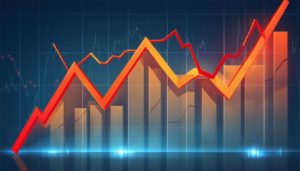Inflation sticks at 3.8%
Prices rises have remained steadily at 3.8% for three consecutive months, the latest data from the Office for National Statistics (ONS) shows.The latest figures from the ONS published on 22 October 2025 show the annual rate of the Consumer Prices Index (CPI) remained at 3.8% in the 12 months to September, unchanged for the third month in a row.
The picture behind the headline figure offers a mixed outlook. Some everyday essentials are rising faster than others, creating a variety of pressures across households.
Food prices remain a key driver of inflation, with items such as meat, dairy and fresh produce still showing annual increases above the average CPI rate. Although food inflation has now slowed for the first time since March, it continues to outpace most other categories.
Energy and fuel costs have stabilised, with domestic gas and electricity prices broadly flat compared with 12 months ago, after sharp declines earlier in 2025. This has removed a major downward influence on inflation that helped reduce the rate earlier in the year.
Services inflation, covering areas such as hospitality, transport and personal services remains persistently high thanks to the ongoing impact of wage growth and strong demand for leisure and travel.
Goods prices, by contrast, are rising more slowly. Furniture, household appliances and clothing have seen subdued increases, with retailers continuing to discount to encourage spending amid weaker consumer demand.
Inflation has now failed to dip for three consecutive months because these opposing forces have largely cancelled each other out. The slight easing in goods and food prices is being offset by strong service-sector inflation.
Underlying ‘core’ inflation, which excludes energy and food, has also proven slow to decline, suggesting price pressures are now more embedded in the domestic economy than driven by external factors.
Implications for November Budget
With the Budget approaching on 26 November, the persistence of inflation has major implications for Government fiscal policy.
Higher inflation means further increases in the cost of index-linked commitments such as state pension, welfare benefits and public sector pensions and pay, putting additional pressures on Government spending.
In turn, that reduces the Treasury’s fiscal headroom which in practice works as a buffer against surprise spending needs. Government borrowing hit a five-year high in September. This further raises the likelihood of targeted tax measures to support fiscal discipline.
Chancellor Rachel Reeves faces a delicate balance: shielding households from rising living costs (including tax increases) while ensuring the public finances are on a sustainable footing. The combination of high inflation and slow growth could make tax rises inevitable.
For households, elevated inflation continues to put pressure on real incomes and savings. The approaching Budget may bring changes that affect personal taxation, investment allowances or pension reliefs.
Anyone concerned about how inflation and Government policy changes may impact their wealth should consider speaking to a qualified financial planner.
Professional advice can help build a long-term plan that takes inflation, interest rates and future fiscal changes into account, helping ensure financial decisions are guided by a clear strategy rather than short-term economic headlines.
If this blog has raised any questions why don't we have a quick chat?

MD & Certified Financial Planner
A brief meeting might be of interest, especially if you’re unsure just how wealth management and financial planning could help you.
It would only require the investment of an hour or so of your time, and the coffee’s not bad either.
